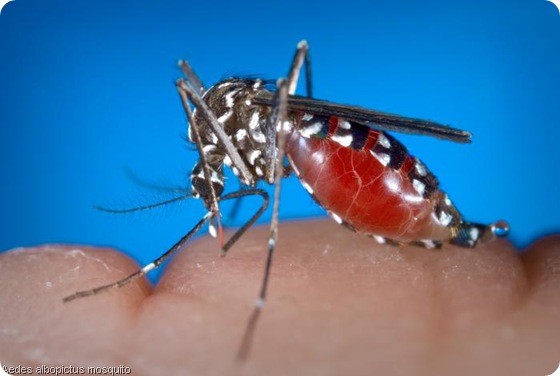Symptoms of West Nile Virus
While 80% of West Nile virus infections produce no symptoms in people, or symptoms which are mild or moderate, about 20% of cases produce mild symptoms including fever, headache, and body aches, often with skin rash on the chest, stomach and back, vomiting, and sometimes and swollen lymph glands - these symptoms generally last a few days, although some healthy people have reported having the illness for several weeks.
A few victims, less than 1% of cases, will however have more severe infections marked by headache, high fever, neck stiffness, muscle weakness, stupor, disorientation, convulsions, paralysis, coma, and, rarely, death - these symptoms may last several weeks, and the neurological effects may be permanent.
Those Most at Risk of West Nile Virus
Those over 50 years of age have a higher risk of developing a more severe infection, as do people with weaker or compromised immune systems and people with chronic diseases, such as cancer, diabetes, alcoholism, or heart disease - they are at greater risk of developing symptoms and health effects that are more serious, including meningitis, encephalitis and acute flaccid paralysis.
Meningitis is inflammation of the lining of the brain or spinal cord - Encephalitis is inflammation of the brain itself and Acute flaccid paralysis is a polio-like syndrome that can result in the loss of function of one or more limbs - these conditions can be fatal.
Symptoms typically develop between 3 and 14 days after a person has been bitten by an infected mosquito.
Those who spend more time outdoors either working or playing are also more at risk as they stand more chance of being bitten by an infected mosquito.
Risk through medical procedures is very low as all donated blood is checked for West Nile virus before being used and the risk of getting West Nile virus through blood transfusions and organ transplants is very small, and should not prevent people who need surgery from having it.
Pregnancy and nursing do not increase the risk of becoming infected with West Nile virus and the risk that West Nile virus may infect a fetus or an infant through infected breast milk is still being evaluated - those with concerns should discuss them with their care provider - there are no reported adverse events following use of repellents containing DEET in pregnant or breast-feeding women - pregnant women and nursing mothers are encouraged to talk to their doctor if they develop symptoms that could be West Nile virus.
Treating West Nile Virus
There is no specific treatment for West Nile virus infection and in most people with milder symptoms such as fever and aches, these will pass on their own without medical attention. In more severe cases, people are often hospitalized where they can receive supportive treatment including intravenous fluids, help with breathing and nursing care.
Further Reading
Last Updated: Jun 5, 2019